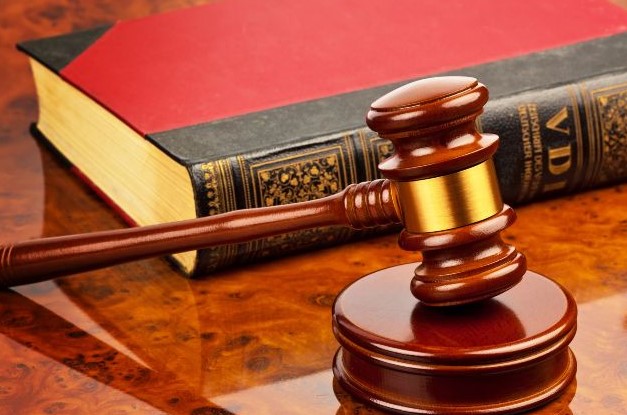William Consovoy, leading conservative lawyer, dies at 48

He was identified in 2020 with glioblastoma, an intense sort of brain most cancers, reported his mother, Linda Whalen. Mr. Consovoy was a key law firm in lawsuits difficult race-mindful admissions procedures at Harvard College and the University of North Carolina that are at the moment awaiting determination by the U.S. Supreme Courtroom. He was not able to take part in the oral arguments in those people instances in Oct due to the fact of his failing wellness.
Even amid his lawful and philosophical adversaries, Mr. Consovoy was regarded as a formidable authorized intellect, just one whose influence was belied by his young age.
“He was insightful, he was clever, he was experienced, and, most importantly, he was brave,” Edward Blum, a conservative activist who worked with Mr. Consovoy to undo aspects of the 1965 Voting Rights Act and on a series of affirmative-action lawsuits, said in an job interview. “He took conditions that the vast greater part of legal professionals and law firms in this state would not choose.”
Mr. Consovoy stood out amid the many Ivy Leaguers who populate the federal judiciary on both of those sides of the bench. He experienced aspired to perform in athletics administration in advance of enrolling at what is now the Antonin Scalia Legislation College at George Mason College, which he mentioned he resolved to show up at predominantly simply because its place in Northern Virginia allowed him to save revenue by living with family.
“Many lawyers in D.C. have this type of higher-course impact, and Will is not a person of all those,” William Baude, a law professor at the College of Chicago and a close friend of Mr. Consovoy’s, explained to The Washington Article in 2019. “You can inform he’s however kind of the scrappy man from New Jersey who doesn’t care about the pomp and circumstance.”
In the program of his authorized reports, Mr. Consovoy discovered reason in the legislation and specially in conservative jurisprudence. Supreme Courtroom Justice Clarence Thomas, whom Mr. Consovoy described as his “hero,” later hired him as a clerk.
Mr. Consovoy spent the early a long time of his vocation as a associate with the Washington legislation agency of Wiley Rein. He was “deeply included,” Blum claimed, “in the arranging and the execution” of Shelby County v. Holder. In that scenario, made a decision in 2013, the Supreme Courtroom voted 5-4 to invalidate a central provision of the Voting Rights Act, which subjected states and localities with a history of racial discrimination to search for federal “preclearance” prior to making variations to the methods citizens vote.
To those who agreed with the court docket, the choice represented a important update to a federal legislation nearly 50 percent a century just after it was passed. Two individuals who disagreed, it was a calamitous blow to protections of civil rights when they remained imperiled. Mr. Consovoy, in remarks quoted by the New York Moments, characterised the ruling as a “modest decision by the court.”
In 2014, Mr. Consovoy aided form the boutique company that is now Consovoy McCarthy. The adhering to 12 months, he argued two instances just before the U.S. Supreme Courtroom — Spokeo, Inc. v. Robins, a situation that was “not popular to the community but of good functional worth to litigators on ‘standing,’” lawful commentator David Lat wrote in a tribute to Mr. Consovoy, and the other, Evenwel v. Abbott, on electoral reapportionment.
But he grew to become possibly best known for his illustration of Learners for Truthful Admissions, a team organized by Blum to problem affirmative action in the college or university software process. (Mr. Consovoy was presently at do the job with Blum on Fisher v. University of Texas, in which the Supreme Courtroom in 2016 finally upheld race-conscious admissions.)
In 2014, Blum’s group filed federal lawsuits towards Harvard and UNC, alleging that race-mindful admissions amounted to racial discrimination that harmed Asian American candidates in particular.
“If the court … asks itself, ‘Can we be self-confident that Harvard is not discriminating towards Asian American candidates in the way the Supreme Court docket asks us to be self-confident if we’re going to make it possible for universities to use racial tastes,’ I believe that the response would be a resounding ‘no,’” Mr. Consovoy said in arguments ahead of an appeals courtroom in 2020, in accordance to the Nationwide Legislation Journal.
The Supreme Courtroom is commonly anticipated to rule from Harvard and UNC. These kinds of a selection would be hailed by opponents of affirmative motion as a victory for what they regard as fairness and decried by supporters of race-acutely aware admissions as a strike against diversity and entrenched institutional bias. A ruling against the universities, Lat wrote, “could close up staying Consovoy’s most enduring legal legacy.”
Mr. Consovoy also captivated attention as a personal lawyer to Trump through his extended-managing fight to avoid congressional Democrats and New York prosecutors from acquiring his tax and other financial documents amid investigations into likely conflicts of interest and overseas influence-peddling.
“We see the overall subpoena as an inappropriate fishing expedition not built in superior faith,” Mr. Consovoy told an appeals court panel in 2019, also arguing that Trump was protected by “temporary presidential immunity.”
Referring to Trump’s marketing campaign boast that he could “stand in the middle of Fifth Avenue and shoot somebody” and not “lose any voters,” a choose questioned if Mr. Consovoy was arguing that even below these conditions the president could not be investigated though in place of work.
“That is suitable,” Mr. Consovoy responded, whilst noting that “of system, Congress retains the impeachment electric power.”
In an electronic mail just after Mr. Consovoy’s death, Douglas N. Letter, a lawyer who served as normal counsel of the U.S. Household of Reps throughout the chamber’s battles with Trump, recalled that he and Mr. Consovoy “squared off towards each individual other in court on different occasions.”
“Will was an particularly experienced litigator,” Letter wrote, “and I knew that I normally experienced to deliver my ‘A game’ when he was on the other facet.”
William Spencer Consovoy was born in Plainfield, N.J., on Aug. 31, 1974.
His father, Andrew, was chairman of the New Jersey Point out Parole Board right before resigning amid allegations, which he denied, that he traded favors with members of the mob. He faced no rates, and his son described the episode to the Instances as “a painful encounter for me and for my loved ones.”
Mr. Consovoy’s mother labored with the state violent crimes compensation board right before main a day-procedure system for grownups with extreme psychological health issues.
In 1996, Mr. Consovoy acquired a bachelor’s diploma in political science from Monmouth College in West Lengthy Department, N.J. At Scalia Regulation School, the place he graduated in 2001, he studied presidential electric power beneath Kenneth Starr, the former U.S. solicitor common and impartial counsel who investigated President Bill Clinton in the make a difference of his affair with previous White Residence intern Monica S. Lewinsky.
In 2020 Mr. Consovoy married Masa Anisic. She died the subsequent yr of colon most cancers.
Apart from his mom, of Scotch Plains, N.J., survivors such as his father, of Centreville, Va. his stepfather, Bernie Whalen of Scotch Plains and a sister.
Irrespective of his stature in the conservative lawful phrase, Mr. Consovoy saved a strategically low profile. “I do not talk to the media,” he was said to have remarked. “I converse to the court.”





